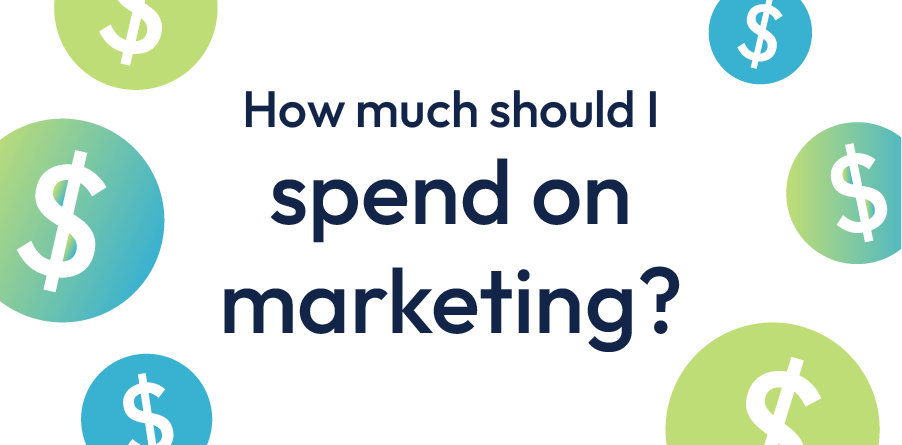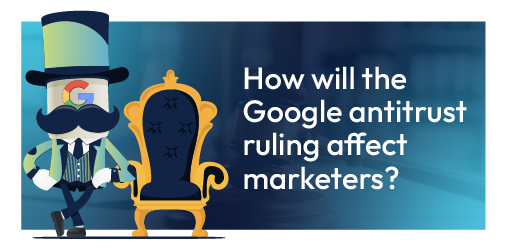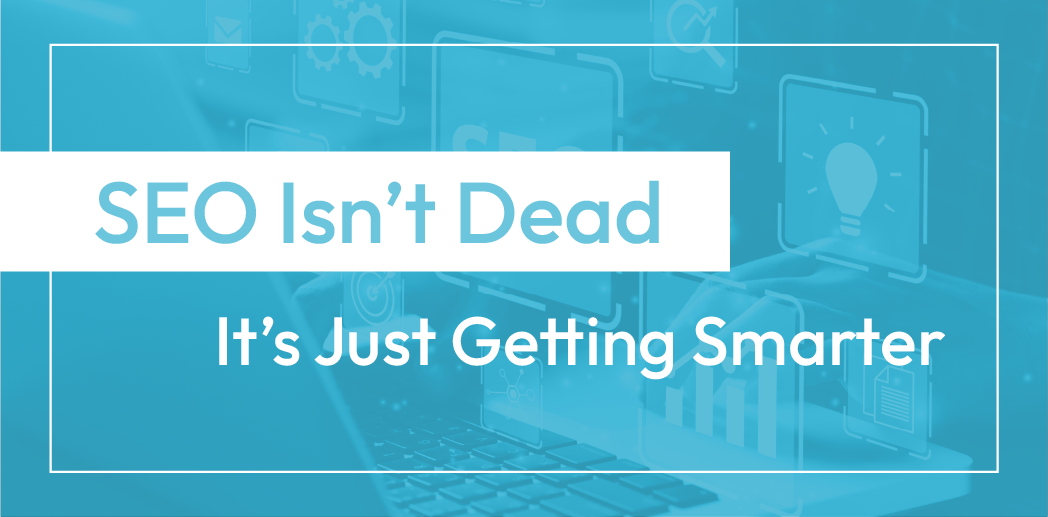How Much Should I Spend on Marketing?

2020’s global pandemic served as a gigantic litmus test for every organization.
For some businesses, marketing became necessary for the first time. Other organizations eventually pushed marketing to the wayside to cut spending.
Regardless of how 2020 affected your business, current trends present opportunity to refocus – and possibly ramp up – your marketing efforts. But getting started is not always easy.
How much money is enough for my marketing budget? Am I wasting money on certain marketing channels? Should I pay for website leads? We empathize with these questions! As a business owner, sorting through marketing questions is challenging, and we hope to offer some answers, beginning with budget.
What is the Average Marketing Budget?
While there isn’t a one-size-fits-all approach for every business, marketing experts agree on a few general principles. These principles are a great starting point.
The 5% rule-of-thumb
As a general guideline, organizations should spend about 5% of their sales revenue on marketing.
Of course, there is room for fluctuation – this percentage will vary by company and industry. For example, if your business generates less than $5 million a year in sales and your net profit margin is in the 10% to 12% range, the U.S. Small Business Administration recommends spending 7-8% of your gross revenue for marketing and advertising.
Highly competitive industries will require a higher percentage of marketing spend. For example, companies in retail, consumer products, and pharmaceuticals will often spend 20-50% of revenue on marketing certain offerings. Analyze what your competition may be spending.
What does a marketing budget include?
Your budget could be applied to a variety of marketing avenues, such as:
- Marketing, public relations, and promotions
- Social media ads
- Print ads
- Sponsorships
- Collateral
Although general rules of thumb apply when beginning to implement your digital marketing strategy, you must consider numerous attenuating factors as well. How much you should spend on marketing varies by the tenure of your industry’s marketplace.
Marketing spend also depends on how much you want to grow in what timeframe. In the marketing world, the adage is largely true: you must spend money to make money.
What Should My Digital Marketing Budget and Strategy Include?
Once your budget is outlined, it can be helpful to breakdown what your digital marketing strategy could include.
1. Set goals
The first step toward marketing budget allocation is determining your marketing goals for the year. Draft simple, measurable, and tangible goals with predefined success indicators tied to each. In other words, you should be able to evaluate if your targets are being met!
A few common marketing goals may include:
- Increase website traffic: measured by monthly unique visitors
- Generate targeted leads to the website: measured by web visits from our geographic service area
- Grow new business or develop a new division: measured by total leads and sales revenue


2. Evaluate your internet marketing foundation
With marketing goals in tow, take some time to examine your marketing foundation. Do you have proper digital assets in place to reach your goals? Is your foundation prepared for growth?
For example, we’ve been approached by business owners intent on pursuing
search engine optimization (SEO), only to uncover significant website issues. When this is the case, we take a step back, often diving into
website development, before starting SEO.
Consider these questions:
- Do you have a clear, consistent brand that properly portrays your company to consumers?
- How does your website compare to your competition? Are you ranking on Google for important search terms?
- Do you have the tools and systems in place to measure the success of your marketing investment?
- To optimize your marketing efforts, remedy any cracks found in your marketing foundation immediately.
If you’re unsure how to identify issues with your internet marketing fundamentals, we will happily run a free website audit for you and provide you with a list of problematic areas.
3. Allocate your marketing budget
With a solid marketing foundation and a clear set of actionable goals, you’re ready to choose the marketing activities that will drive your strategy forward.
Although every organization’s needs are unique, it’s useful to see how others are allocating their marketing budgets. Recent reports provide valuable insights into current trends in marketing spend across digital and offline channels.
According to the latest data from eMarketer and Forrester Research, digital marketing investments continue to grow rapidly:
- Digital Channels Dominate: Investment in digital marketing channels—including paid search, display advertising, social media advertising, online video, and email marketing—is projected to account for nearly 61% of total global ad spend in 2024 .
- Search and Display Lead the Way: Search engine marketing remains the largest share of online spending, with display advertising (including banner ads, online video, etc.) taking the second largest share .
- Social Media Spending on the Rise: According to the February 2024 CMO Survey, social media now represents an average of 14.8% of total marketing budgets, reflecting its growing importance in reaching and engaging audiences .
- Mobile Marketing Integration: Mobile marketing has become so integral that it is now embedded across all digital channels, rather than being tracked separately. This shift underscores the importance of mobile-friendly strategies in today’s marketing efforts .

Ultimately, the way in which you allocate your marketing funds will depend on the nature of your business, the competitive marketplace, and how target customers behave throughout the buying funnel. By understanding where the industry is trending, you can make more informed decisions about where to allocate your marketing budget, ensuring that your efforts align with current best practices and deliver the best possible results.
If you are unsure which marketing channels are best for your organization, we’d love to walk you through a few recommendations tailored to your business.
RivalMind: Digital Marketing Made Simple
At RivalMind, our expert SEO services are unequivocally genuine. We leverage decades of experience working alongside brands of all sizes and industries, dedicated to advancing organizations with profitable results.
Interested in learning more about how our transparent, comprehensive process could deliver measurable growth? Give us a call today at 331.228.9636 or complete our online form.

Meet the Author
Matt Scroggs
CMO RivalMind
Hi, I'm Matt Scroggs, a digital marketing strategist. For two decades I served as the senior digital marketer for several global, iconic brands. Today, I'm the chief marketing officer at RivalMind, an agency 100% dedicated to helping companies thrive by driving transformational growth through innovative digital marketing. I'm also a lifelong Cubs fan, a faithful family man, and a web analytics junkie—relentlessly tracking conversions, loyalty, and advocacy, which are often as elusive as the pennant!
Specialties: Helping Businesses Grow, Marketing Strategy, Idea Guy
Looking for more organic website traffic?
Welcome to RivalMind. Our purpose is to help your business thrive. We are a digital marketing agency that offers SEO, PPC, Web Design, Social Media and Video Solutions as tools to our clients for online business development and growth.
Contact us today to get started!
Blog Contact Form
Connect with Us:




